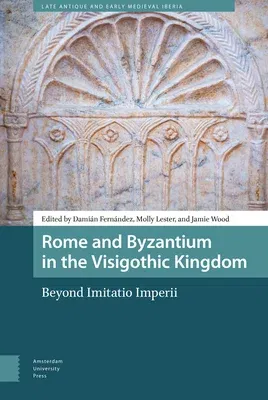Rome and Byzantium in the Visigothic Kingdom: Beyond Imitatio ImperiiHardcover, 20 May 2023

Temporarily out of stock
Free Delivery
Cash on Delivery
15 Days
Free Returns
Secure Checkout

Part of Series
Late Antique and Early Medieval Iberia
Print Length
378 pages
Language
English
Publisher
Amsterdam University Press
Date Published
20 May 2023
ISBN-10
9463726411
ISBN-13
9789463726412
Description
Product Details
Book Format:
Hardcover
Country of Origin:
US
Date Published:
20 May 2023
Genre:
Medieval (500-1453) Studies
ISBN-10:
9463726411
ISBN-13:
9789463726412
Language:
English
Location:
Amsterdam
Pages:
378
Publisher: